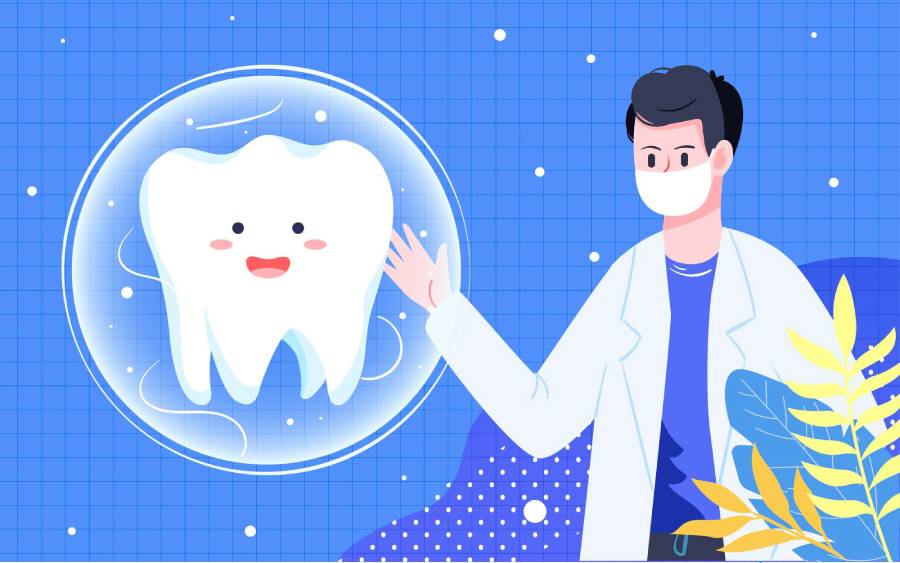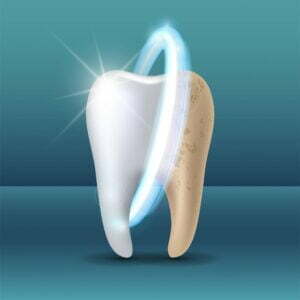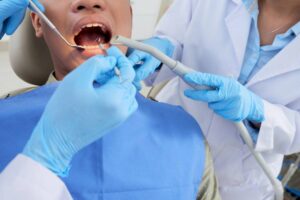Wisdom teeth, also known as your third set of molars, generally appear during your teens or early adulthood. The top molars are rarely the center of attention regarding their positioning and abnormalities in the rest of your teeth if not properly aligned.
In addition, your mouth is designed to hold 28 original teeth and is not large enough to accommodate later teeth. For many people, however, these teeth never fully erupt and remain stuck underneath the gum line.
According to the Smithsonian Institution, this is not an uncommon problem; it is estimated that hundreds of years ago, most people had problems with their wisdom teeth. While the cause for this is unknown, it is speculated that diet and oral hygiene changes over time are largely to blame.
This article will help you know when you get your wisdom teeth.

Wisdom Teeth Removal
Blog Contents
Wisdom teeth are often removed without the person’s consent or knowledge. The removal of these teeth can have significant impacts on the person’s oral health and overall well-being.
Wisdom teeth are important because they contribute to the overall structure of the mouth, and their removal can lead to problems with chewing and swallowing. If a wisdom tooth is left untreated, it can also become infected, causing pain and swelling in the jaw.
Sometimes, a wisdom tooth may even require surgery to remove it. If you’re considering removing your wisdom teeth, speak with your dentist about your options.
What Age Do You Get Your Wisdom Teeth?
Most people get their wisdom teeth between the ages of 17 and 25. However, sometimes they don’t come in until much later in life. Sometimes they don’t even come in at all!
Wisdom teeth can be impacted – they can get stuck in the jawbone and not come through the gum. When this happens, you may need oral surgery to have them removed.
Wisdom teeth are often called “third molars” because they are the last to come in. They are located behind your second molars at the very back of your mouth. Most people have four wisdom teeth, but some may have only two or three.
If your wisdom teeth aren’t coming in properly, they may cause tooth decay or gum disease. However, it’s not unusual for wisdom teeth to erupt partially or even break through the gums well before this time.
If you’re wondering whether your child is due for wisdom teeth, it’s best to consult with a board-certified oral health professional.
They can help you gauge when the teeth will likely break through the gums and whether they need to be removed.
Signs of Eruption
The Oral Health Foundation warns that during the first few days of your period, you could experience some pain and discomfort.
This is because hormonal changes can cause the muscles in your uterus to contract, which can pressure nearby organs, such as your bladder and intestines. Additionally, your gums may be more sensitive and bleed more easily.
When you experience soreness or pain, over-the-counter pain relievers or gently swishing warm salt water can help. Pain relief comes in many forms, and it’s important to find the right one for you. Over-the-counter medications like ibuprofen or acetaminophen can be effective if your pain is mild.
If your pain is more severe, prescription medications may be necessary. In addition to medication, other methods of relief can be helpful.
Gently swishing warm salt water in your mouth can help to soothe the area and reduce inflammation. Alternatively, applying a heating pad or ice pack may also provide relief.
It’s important to find what works best for you and stick with it. Pain can be frustrating and debilitating, but there are ways to manage it effectively.
Pace Wisdom Tooth Removal To Fit Your Schedule
The importance of wisdom teeth cannot be overemphasized. They are responsible for removing food from the mouth and play an important role in dental health.
If not removed correctly, wisdom teeth can cause problems such as obstruction of eating and breathing, headaches, and even infection.
As a dental hygienist, I often hear people say they are waiting to have their wisdom teeth extracted until after the holidays or until summer. Many believe scheduling surgery during these times will give them a break from work or school.
However, what many people don’t realize is that there are several benefits to having wisdom tooth extractions done during these times.
One of the benefits of having surgery during the summer is that you will have more time to recover. Unlike during the school year, when you may only have a few days off from work or school if you have surgery during the summer, you will likely have at least two weeks to recover before returning to your normal routine.
This extra time can be very beneficial, especially if you are not used to caring for yourself after surgery.
Conclusion
In conclusion, wisdom teeth typically come between 17 and 25. However, there is a lot of variation from person to person, so it is best to consult with your dentist to get a more accurate estimate. If you are experiencing pain or other problems with your wisdom teeth, seeing a dentist as soon as possible is best.







